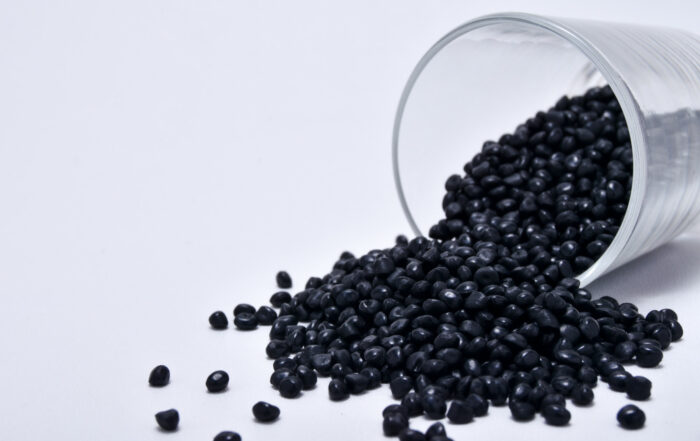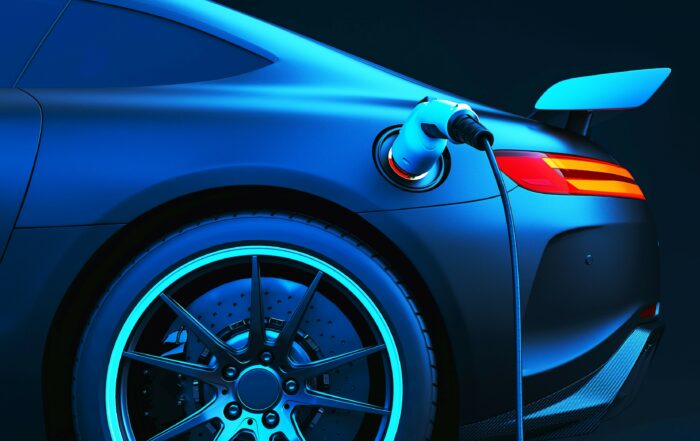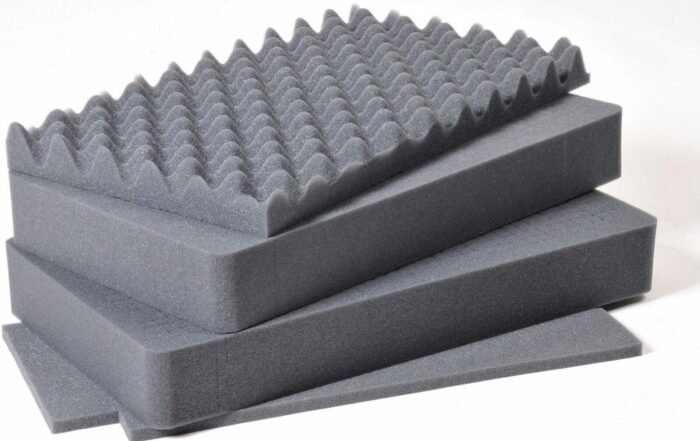At NeoGraf, we are leaders in thermal management, pushing graphite to new horizons through hard work, persistence, ingenuity, and an undying belief that we can make the future better. We are a market-driven company that strives to understand the unmet needs of our industry. In doing so, we build strong relationships with our customers, becoming their trusted advisors. It’s our entrepreneurial attitude and innovative approach in R&D, product development, manufacturing, and process improvement that we leverage to bring products, technologies, and success to our global stakeholders.
Graf-M™ Graphite Masterbatches Enhance Performance in a Wide Variety of Applications
NeoGraf Solutions' Graf-M™ masterbatches represent a cutting-edge approach to enhancing polymer performance through the incorporation of graphite-based additives. These innovative products combine pelletized masterbatches and dispersions with NeoGraf's Graf+® graphite powders, Graf-X™ graphene nanoplatelets, and GrafGuard® expandable graphite flakes, offer manufacturers a powerful tool to elevate their materials' capabilities and simplify the manufacturing process. […]Learn More
Battery Pack Thermal Propagation Control Strategies in Electric Vehicles Using SpreaderShield™ Flexible Graphic
An emerging trend over the last two to three years has been to add layers of thermal insulation and flame/gas impingement barriers between the pouch and prismatic format cells in a battery pack to prevent thermal propagation. This passive thermal management solution has been shown to effectively prevent propagation without adding excessive weight to the battery. The obvious downside of this method is that the battery cells are surrounded by insulation, and there is no easy path for the internal heat of the cells to spread to the environment outside of the pack. How do you fix the problems caused by using an insulation-only strategy? It’s simple: Add NeoGraf Solutions’ SpreaderShield™ thin, flexible, and lightweight graphite heat spreader to the battery pack. [...] Learn More
GrafGuard® Expandable Graphite Systems Help Meet ASTM E-84 Testing Requirements
ASTM E-84 is the standard test method for assessing the surface burning characteristics of building products. A new white paper from NeoGraf Solutions, “GrafGuard® Expandable Graphite Systems Help Meet ASTM E-84 Testing Requirements” discusses how GrafGuard® expandable graphite expands into a charred intumescent foam when exposed to the heat or flame, protecting the substrate and helping to pass the ASTM E-84 requirements. Minimizing both the smoke development and flame spread maximizes the potential flame spread index classification of the material. [...]Learn More
Bringing the Thermal Management Methods of Consumer Electronics to Transportation Batteries Using SpreaderShield™ Flexible Graphite
In many early battery-powered electric vehicles, cell temperatures were controlled by aluminum. It was a time-tested thermal management material and it could take on some of the structural duties of the battery pack. Battery pack designers recognized aluminum’s drawbacks and began looking for alternative thermal management materials. To spread the same amount of heat as an aluminum plate, NeoGraf Solutions’ SpreaderShield™ flexible graphite is only half of the thickness and one-third of the weight. […..] Learn More
GrafGuard® Expandable Graphite: A Safer Choice for Fire Protection
Protecting people and property from fire is crucial, and fire retardants play a vital role in achieving this goal. While various fire retardants exist, melamine-based options raise concerns due to their EU classification as substances of very high concern (SVHC) in the REACH regulations. GrafGuard® expandable graphite from NeoGraf Solutions is a safe and effective replacement for melamine-based fire retardants […..]Learn More
Helping the Hydrogen Fuel Cell Industry with Fuel Cell Bipolar Plate Design Assistance
The fuel cell industry is a rapidly increasing market segment and well poised to achieve $7.2 billion by 2030. The primary industries that are driving the increased demand for fuel cell applications include automotive, stationary and supplemental power, and portable electronics. [...]Learn More






